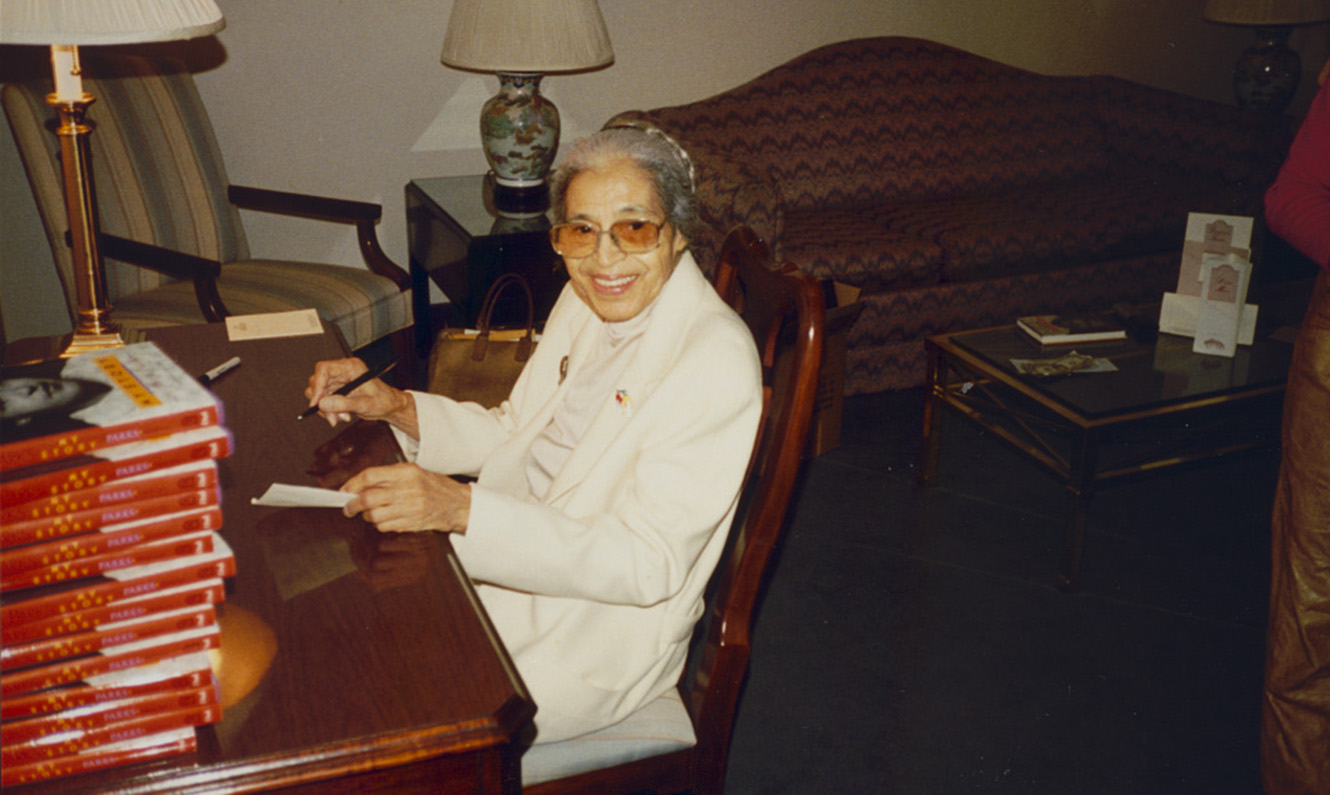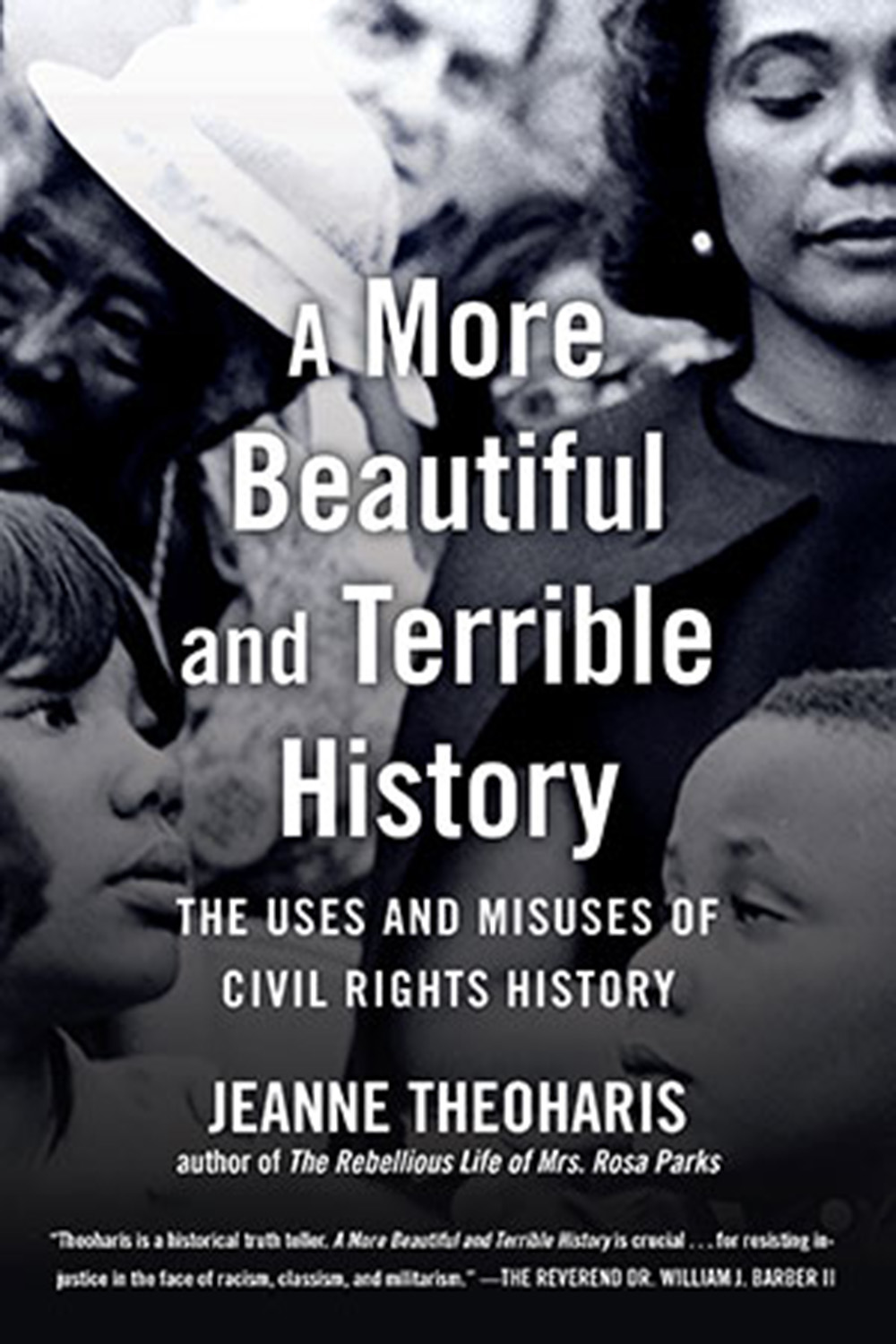
Rosa Parks sitting at a desk next to copies of her 1992 autobiography, c. 1992. Library of Congress, Prints and Photographs Division.
Each issue of Lapham’s Quarterly, celebrating its tenth anniversary this year, addresses a theme—States of War, States of Mind, Food, Youth, Animals—by drawing on primary sources throughout history, finding the rhymes and dissonances in how these topics have played out and been perceived over the centuries. In this new series, we open up the sleuthing beyond our staff and four annual themes by letting historians and writers share what they have come across in their recent visits to the archives.
Our third selection comes from Jeanne Theoharis, author of A More Beautiful and Terrible History: The Uses and Misuses of Civil Rights History, out now from Beacon Press. The reading comes from the personal papers of Rosa Parks, which opened to the public only three years ago.

Rosa Parks, born on February 4, 1913, is now well known for her stand on the bus in Montgomery, Alabama, in 1955. But a sense of her actual thoughts, let alone her broader activism, is rarely included in the version now widely taught and celebrated about her. This snippet of her personal writings from the time provides a sense of her perspective on why she refused the driver’s order to get up, as well as revealing her political sensibility. Additionally, while Parks was incessantly eulogized as “quiet” when she died in 2005, at key moments, as she makes clear here, she was far from quiet. Indeed, she questioned the arresting officers that evening in a further act of bravery: “Why do you push us around?”
Read more of Rosa Parks’ writing at the Library of Congress.
